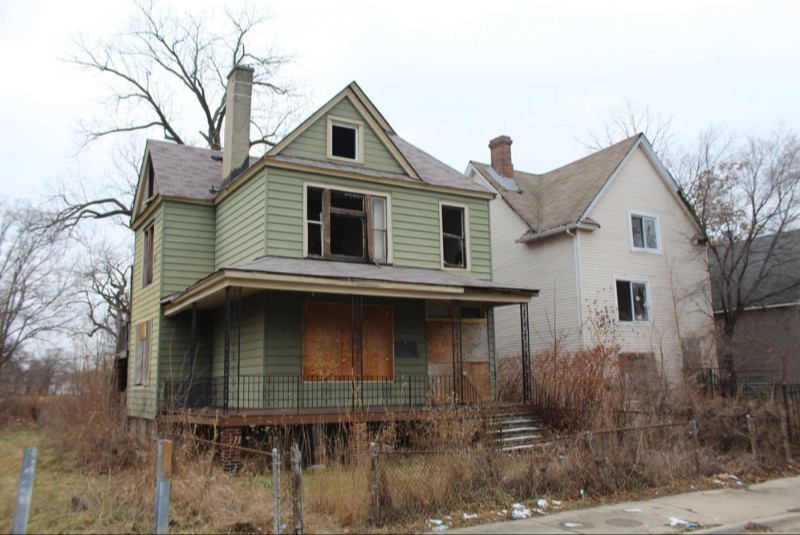Are you captivated by the idea of transforming neglected and abandoned houses into thriving homes or lucrative investments? The allure of buying cheap abandoned houses lies in the potential to reap significant financial benefits. These deserted properties are often sold for a fraction of their market value, offering savvy buyers an opportunity to invest at minimal cost with the potential for high returns. Discover where to find these hidden gems and uncover some of the best abandoned house deals available today.

Understanding the Market for Abandoned Houses
Abandoned houses present a unique opportunity within the real estate market. They are typically properties that have been vacated and are no longer maintained by their owners due to various reasons, such as financial hardships, foreclosures, or relocations. Consequently, these houses often end up being sold well below their market value, offering a considerable bargain for buyers willing to invest in restoration and renovation.
The demand for such properties has risen as more individuals recognize their potential as investment opportunities. For instance, investors can purchase a dilapidated property inexpensively, invest in renovations, and either flip it for a profit or rent it out as a source of steady income. Understanding this dynamic market is crucial to identifying the best deals on abandoned properties.
Where to Find Cheap Abandoned Houses for Sale
Locating cheap abandoned houses requires a blend of online searches and local exploration. Here are some proven methods to help you discover these properties:
- Online Real Estate Platforms: Websites like Zillow Foreclosures and HUD Homes specialize in listing foreclosed and abandoned properties. You can customize your search based on location, price, and type of property to find a deal that suits your interests.
- Government and Bank Auctions: Organizations like the U.S. Treasury, via their Real Property Auctions, and resources like USA.gov offer avenues for purchasing properties at auction. Banks, such as those listing on Bank of America Foreclosures, often sell foreclosed homes at a discount through auctions as well.
- Local Listings and Real Estate Agents: Engage with local real estate agents who might have insights into upcoming foreclosure sales or off-market abandoned properties. Local listings might reveal hidden gems not advertised nationally.
- Auction Websites: Websites like Auction.com list properties being sold through public auction, many of which can start at incredibly low prices.
- USDA Resales: The USDA occasionally lists properties for resale, accessible via their Resales Maps. These may include rural homes that can be purchased for significantly less than traditional real estate prices.
Why Are Abandoned Houses So Affordable?
The affordability of abandoned houses stems from several factors, primarily the condition and perception of risk associated with these properties. Here are some reasons why these properties are a bargain:
- Deferred Maintenance: Abandoned homes often suffer from years of neglect, leading to significant deterioration. This impacts their market value, making them cheaper to purchase.
- Foreclosure Status: Many of these homes are bank-owned due to foreclosure. Banks are motivated to sell quickly to recoup losses, often resulting in steep discounts.
- Location Challenges: Some abandoned properties are located in less desirable areas, where lower demand leads to reduced prices.
- Investor Risk: The perception of risk, involving potential structural issues and unknown repair costs, might deter buyers, leading to lower prices for those willing to take the plunge.
Steps to Successfully Purchasing an Abandoned House
Securing an abandoned property involves some unique challenges and considerations. Here’s a step-by-step guide to help navigate the process:
- Research and Due Diligence: Before making an offer, thoroughly research the property's history, title, and any liens. The more information you gather, the better prepared you will be to negotiate.
- Set a Budget: Factor in both the purchase price and the cost of repairs. Overestimating potential expenses can safeguard against unexpected financial strains.
- Inspect the Property: Hiring a professional inspector can highlight the extent of repairs needed, allowing for more accurate budgeting and planning.
- Work with Professionals: Enlist the help of real estate agents specializing in foreclosures and contractors experienced in renovating neglected properties.
- Make an Offer: Based on your assessments, submit a competitive yet reasonable offer. Be prepared to negotiate, especially in competitive markets.
- Secure Financing: Explore financing options tailored to purchasing distressed properties. Some lenders offer renovation loans that include purchase and rehabilitation costs.
- Renovate: Once ownership is secured, prioritize structural repairs, followed by cosmetic upgrades. Proper renovation can significantly increase the property’s value.
The Benefits of Investing in Abandoned Properties
Investing in abandoned houses not only offers the potential for significant financial rewards but also contributes to community revitalization. Here are some benefits:
- Value Appreciation: Well-executed renovations can greatly increase the property’s value, offering substantial returns on investment.
- Rental Income: Renovated properties can be leased to generate a steady income stream in rental markets.
- Community Impact: Revamping abandoned homes can improve neighborhood aesthetics and boost local property values, fostering community pride and economic health.
- Left-Lean on Initial Investment: The initial low cost of acquisition provides a cushion, reducing financial pressure compared to traditional real estate investments.
Common Challenges and How to Overcome Them
Although the prospects may seem enticing, purchasing abandoned houses comes with challenges:
- Unexpected Repair Costs: Hidden issues can inflate renovation budgets unexpectedly. Mitigate this risk by allocating extra funds and conducting thorough inspections.
- Prolonged Renovation Timelines: Delays can occur due to permits, contractor availability, or unforeseen repairs. Plan timelines generously and maintain open communication with your contractors.
- Potential Legal Issues: Verify the property’s legal status comprehensively to avoid issues with previous owners or encumbrances.
Pursuing abandoned houses as an investment opportunity requires diligence, patience, and strategic planning, but with the right approach, it can be a rewarding venture. Transforming these neglected properties not only bolsters personal financial growth but contributes to broader community revitalization efforts. With the resources and strategies outlined, you can embark on your journey to discover affordable abandoned houses and turn them into profitable treasures.


